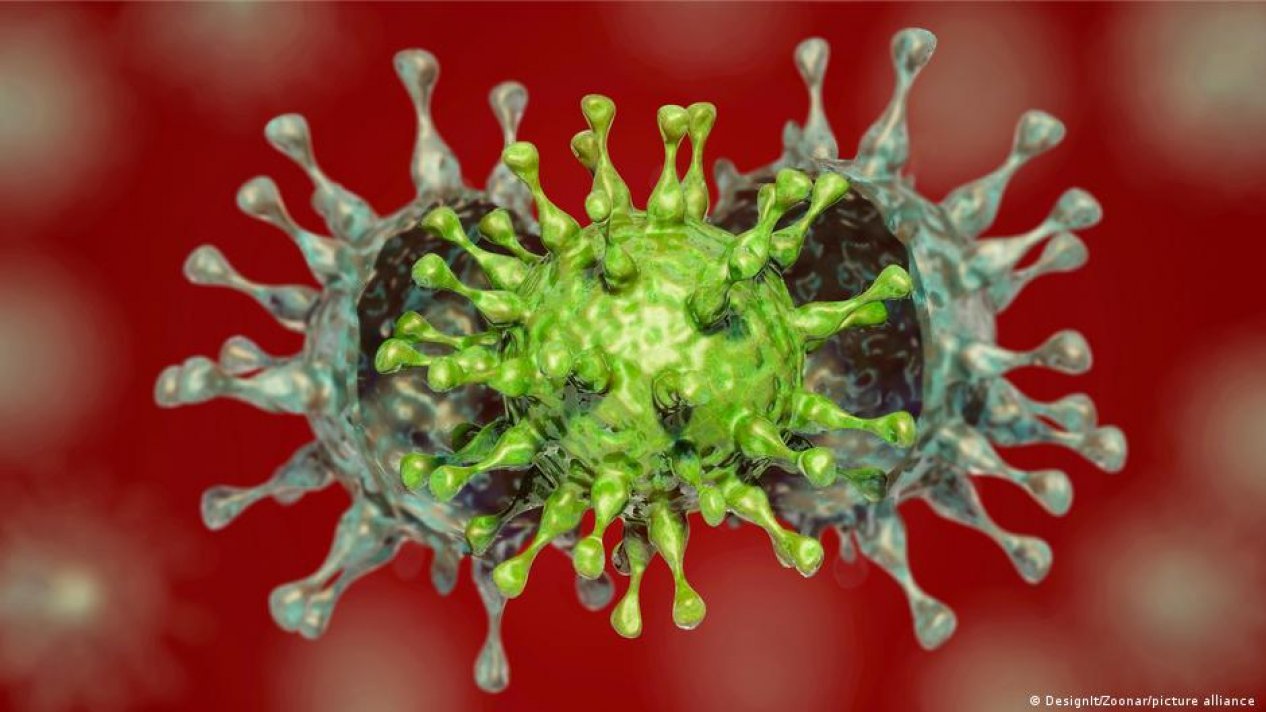
Experience has shown that if a person without a mask walks past a person wearing a mask but who is infected with the Delta strain of COVID, there is a chance of infection, Azerbaijani infectious disease doctor Vugar Javadzade said commenting on the current situation in connection with the Indian strain of the coronavirus "Delta" and "Delta+". He noted that the latter is twice as infectious as the "normal" variant of coronavirus.

To begin with, the variant of the coronavirus, which first manifested itself in India, is still the least studied of all known strains of the disease. This, in particular, concerns the methods of protection against it, their effectiveness.
What is the "delta" variant of the coronavirus?
This is B.1.617.2 strain, formerly known as "Indian", which was first discovered in October 2020 in the Indian state of Maharashtra. Since then, the repeatedly mutated virus has spread widely not only throughout the country, but also in the world. Infection cases have been recorded in more than 90 countries.
It is known that "Delta" is very resistant to antibodies, as a result of which there are a lot of cases when COVID survivors, as well as those who have been vaccinated, contract it again.
Experts agree that the new strain and its mutant versions have increased virulence (infection) and contagiousness (the possibility of spreading). That is why this type of COVID-19 causes the disease faster than the Wuhan strain.
According to the WHO, the Indian strain of coronavirus is at least twice as contagious as the original version. One infected person is able to transmit it to four, six or even eight people, and existing vaccines often do not save patients from Delta.
The Delta strain of coronavirus is spreading twice as fast as the first variant of SARS-CoV-2, said Soumya Swaminathan, WHO Chief Scientist. She argues that due to the high speed of spread, this variant may soon become dominant in the world.
In her opinion, one vaccination will not be enough to fight the virus.
New strains lead to the need to wear masks, maintain social distance and quarantine for sick people, and conduct tests.
Swaminathan noted that the Delta Plus variant has additional mutations that have also been found in the Beta and Gamma variants. They can interfere with the ability of antibodies to fight the virus. But so far, few cases of this strain have been found, and the WHO will study whether Delta Plus really has any characteristics that differ it from Delta variant.

Imperial College London professor of immunology Danny Altmann explained in an interview with the British newspaper Evening Standard that B.1.617 certainly has mutations similar to those that evade the best neutralizing antibodies.
"Delta" has several mutations at once, including in the spike protein. Exactly how they function is still not well understood. However, it is now known that these changes allow the virus to more easily enter the cells of the human body and avoid some immune reactions, Deepti Gurdasani, a clinical epidemiologist at Queen Mary University of London, said in an interview with DW.
The Indian strain of the coronavirus, also called the delta variant, causes a high viral load in the throat faster than usual, so those infected with it can infect others without even knowing they are infected themselves. This is how the chairman of the World Medical Association founded in 1947, Frank Ulrich Montgomery, explained the high rate of its spread.
He stressed that due to the rapid spread of this mutation of the virus, it is necessary to accelerate vaccination, as well as continue to wear masks in public transport, shops and other indoor areas. At the same time, Montgomery believes that these should be at least FFP2 respiratory masks, and not standard medical ones.

Other experts also speak about the special requirements for the degree of protection of masks in relation to the Indian strain.
It is necessary to have not just a mask, but a good respirator, says Russian doctor Kirill Kalistratov. He said that the novel coronavirus is also transmitted through the mucous membrane of the eyes, and therefore recommends wearing glasses in places of increased risk of infection.
A similar opinion was expressed by Director of the All India Institute of Medical Sciences, pulmonologist Randeep Guleria, practically, word for word, repeating what Vugar Javadzade said: “It is possible to get infected with a new strain even by walking past a sick person without a mask.”
N95 respirators, and also nylon masks protect against coronavirus infection best of all, according to scientists at the University of North Carolina Health, their study was published in the scientific journal JAMA Internal Medicine.
Meanwhile, not all experts are so confident in the need for respirator masks with increased protection. Some people think that conventional medical masks are enough, but doubt the use of reusable cloth masks for this purpose.
Proponents of this idea emphasize that respiratory-type masks perfectly protect those who wear them, but unlike medical masks, they hardly prevent viruses from penetrating outside, thereby endangering others.
We can record that the majority of medical experts agree that the “Indian” variant of the coronavirus is more aggressive and virulent than the “Wuhan” one, in terms of the speed of spread it is several times higher than the latter. When it comes to whether wearing a mask guarantees protection from this particular type of virus, there is no unequivocal opinion in the world of medicine. Nevertheless, there is a strong belief in this community, based on international practice, that wearing protective medical, surgical, anatomical, respiratory or other types of masks, still have some effect in terms of protection against viruses, regardless of the specific type.
At the same time, the World Health Organization warns that masks alone are not enough to protect against coronavirus, and even their use does not give a full guarantee against infection.




















